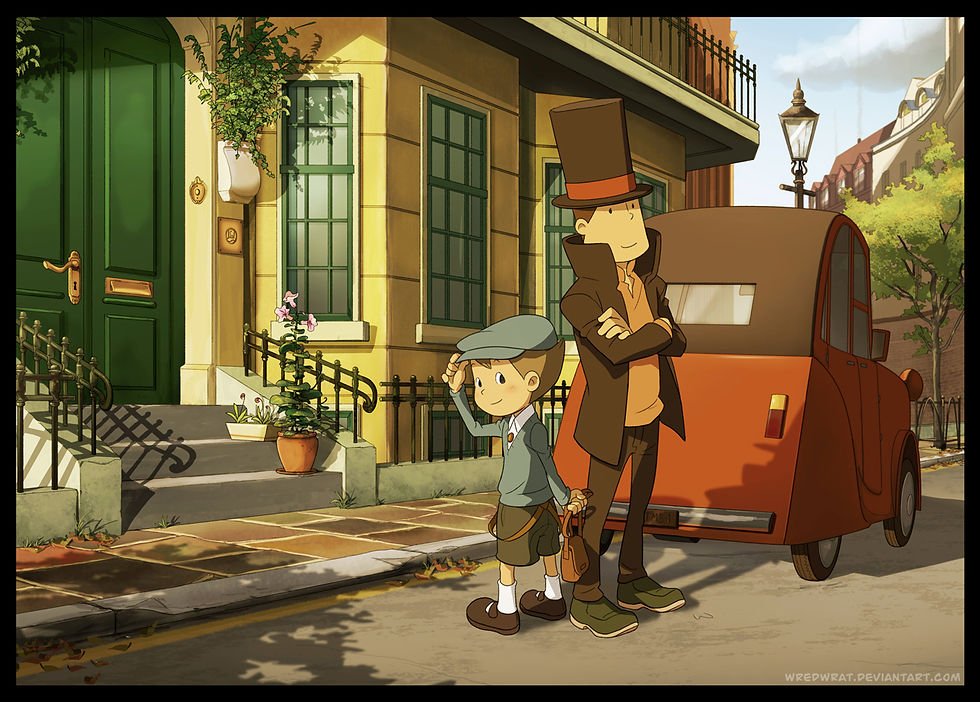Game Genres
- jesskesson
- Mar 11, 2019
- 3 min read
Today we learned about different game genres, and how they can affect the way players play the games, and what kind of players play the games.
There are a lot of different genres, which can attract different audiences. I'm going to explain four genres, giving a description of them, naming a few mechanics that would come into play, and give an example of a game or game series that falls into that category.
Action - platformer games
Platformer games were some of the first created because of limited graphic and technology. These are games (usually 2D or mock-2D) in which the player has to jump around to reach the goal, usually avoiding enemies.
The main mechanics to these games would be jumping, running or walking at different speeds, button combinations for different jumps, maybe some collectables to give the character abilities and clear directions on how to get to the goal. This genre of game would most likely be single player. However, it could be a game in which two players are needed to complete a platforming puzzle together.
A good example of a platforming game series would be the Super Mario Series. In the first games, all you can do is jump, squash enemies and collect items from mystery boxes around the levels.

Action-adventure
Action-adventure games are all about being able to roam around, going from place to place or doing side activities. These games are usually quite linear, but because it's an adventure there's always some form of conflict.
The main mechanics of an action-adventure game is the ability to run free. You'll usually have the option to interact with the story in some way (sometimes not changing it, but the player will be made to feel included). These games are single player.
An example of an action-adventure game would be Legend of Zelda: Breath of the Wild. In this game, the world is open, and you have the option to do side-quests, follow the main quest (which the four main tasks can be done in any order).

Roleplaying games
These games are popular because of the freedom they can grant players. These usually contain a heavy dose of fantasy and adventure to keep the players interested, as well as customization and choices.
The mechanics of roleplaying games are simple. You'll usually create a character, be spawned into the 'hub' world, and will be given a tutorial or starting quest. There are also a lot of resources, like an in-game currency, or armour and weapons that can help the player. These games can be single player of multiplayer over a network.
A good example of a single player roleplaying game would be Undertale. At the start of the game you are asked to pick a name for your character, and later on it is possible to make choices that will determine how things will turn out. One of the best parts of the game is exploring the world and learning new things about the situation.

Puzzle
Although this was not mentioned, puzzle games are very popular with children and adults alike. Games like these can have a bigger story that could be solved by completing a puzzle, or the game could just be to randomly generate a puzzle.
The mechanics of a game like this would be simple. A puzzle would be given to a player, and the player would have to solve it, maybe within a time limit. This type of game could be multiplayer, and everyone would be working against each other, or together, or in teams.
A good example of a puzzle game would be the Professor Layton series. In the series, you solve puzzles and explore a set area to progress the story, which is always a mystery. It is always fun to roam the area, yet still have puzzles to solve.

These are only a few of the many game genres, but these are the ones that I find more enjoyable. A good game should always have some sort of challenge, be it platforming, exploring an open world, trying to get the best outcome, or even solving puzzles to get the player thinking.



Comments